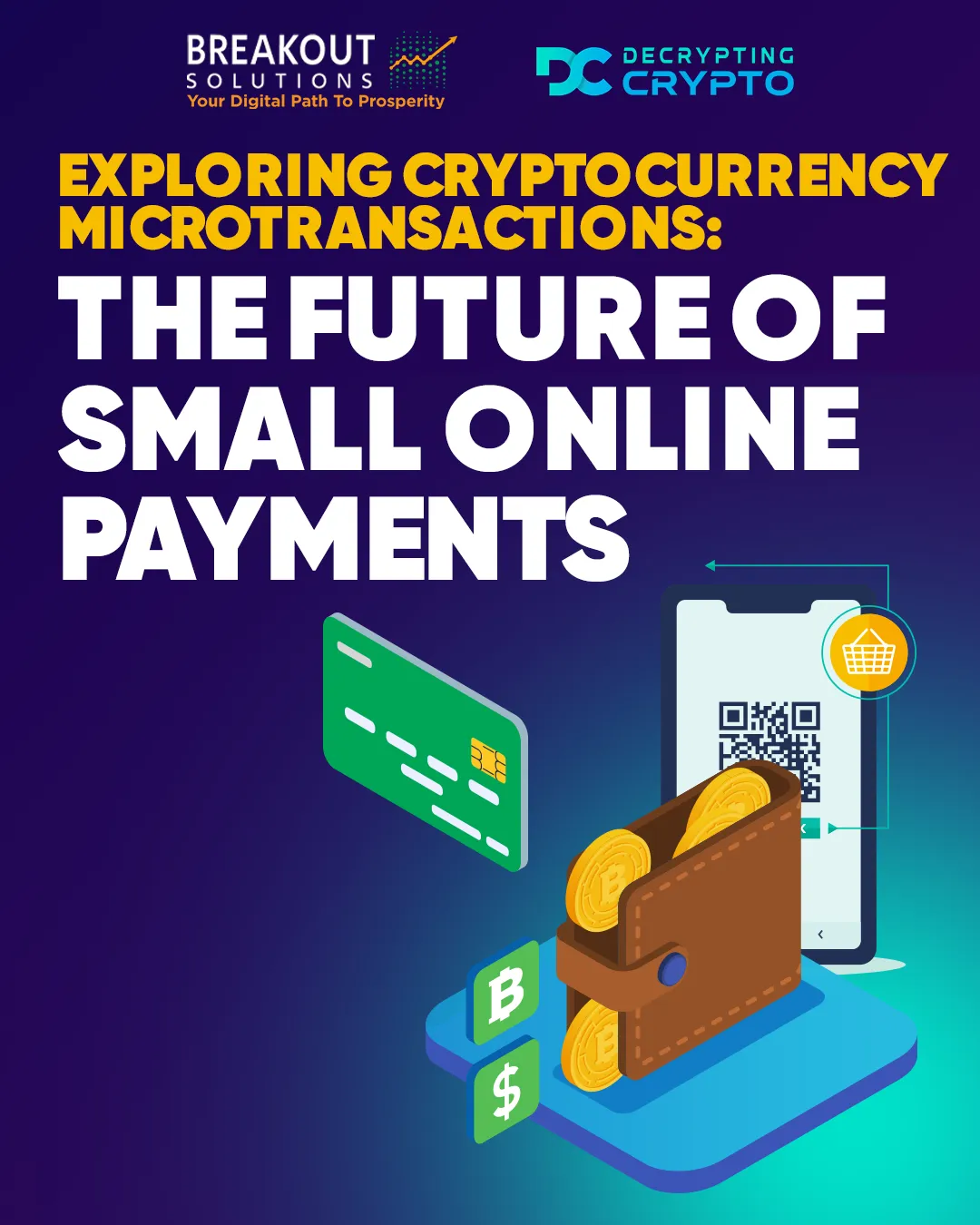Exploring Cryptocurrency Microtransactions: The Future of Small Online Payment
Author: JR Foronda

In today's digital age, making quick and small payments online—whether buying a song, a game, or accessing a premium article—has become a daily activity for many. However, the traditional ways of handling these small payments, often called microtransactions, can be costly and inefficient. Enter cryptocurrencies, which are set to revolutionize how we make these tiny purchases, making them not just feasible but also economical. Let’s explore how cryptocurrencies are changing the game for microtransactions.
What Are Microtransactions?
Microtransactions are small financial transactions, often for amounts less than a dollar. In the digital world, they are commonly made for various online services and products. Traditional payment systems, however, have limitations. They often involve fees that can be quite high relative to the small transaction size, and processing times can be slow.
The Role of Cryptocurrencies in Microtransactions
Cryptocurrencies, powered by blockchain technology, offer a promising solution to these challenges. They allow for transactions that are not only fast but also have very low fees, making them ideal for microtransactions.
Advantages of Using Cryptocurrencies for Microtransactions:
- Low Transaction Fees: Unlike traditional banking systems that charge a percentage of the transaction amount, many cryptocurrency networks charge a minimal or even no fee. This is particularly advantageous for transactions involving small amounts of money.
- Speed: Cryptocurrency transactions can be processed within seconds or minutes, regardless of the amount or the geographical locations of the sender and receiver. This makes it an excellent option for digital services that require instant access after payment.
- Accessibility: Cryptocurrencies are decentralized and accessible to anyone with an internet connection. This universal accessibility makes it easier for content creators and service providers to reach a global audience without the need for localized payment systems.
- Security: Blockchain technology provides robust security features. Transactions are encrypted and recorded on a distributed ledger, making fraudulent activities extremely difficult.
Real-World Applications
Several platforms have begun to utilize cryptocurrencies for microtransactions, especially in areas like digital media, online gaming, and content creation:
- Digital Media: Websites that offer articles, videos, or music can use cryptocurrencies to allow users to pay small amounts to access a specific piece of content.
- Online Gaming: In the gaming industry, players can use cryptocurrencies to purchase in-game items or upgrades without the hefty fees often associated with small transactions.
- Content Creators: Platforms like Patreon or similar could use cryptocurrencies to process small, regular payments from subscribers to content creators, providing a more efficient way to support artists and writers.
The Future of Microtransactions
As the digital economy continues to grow, the demand for efficient microtransaction solutions becomes more apparent. Cryptocurrencies are well-positioned to meet this demand, offering a fast, secure, and low-cost option for transactions of all sizes. The future looks promising, as more businesses and platforms recognize the potential of cryptocurrencies to reduce costs and simplify processes for small online payments.
In conclusion, the integration of cryptocurrencies into the world of microtransactions opens up a plethora of opportunities for businesses and consumers alike. It not only makes online payments more practical but also encourages a more dynamic and inclusive digital economy. As we move forward, it's exciting to think about how this technology will continue to evolve and reshape our approach to small-scale financial transactions.

